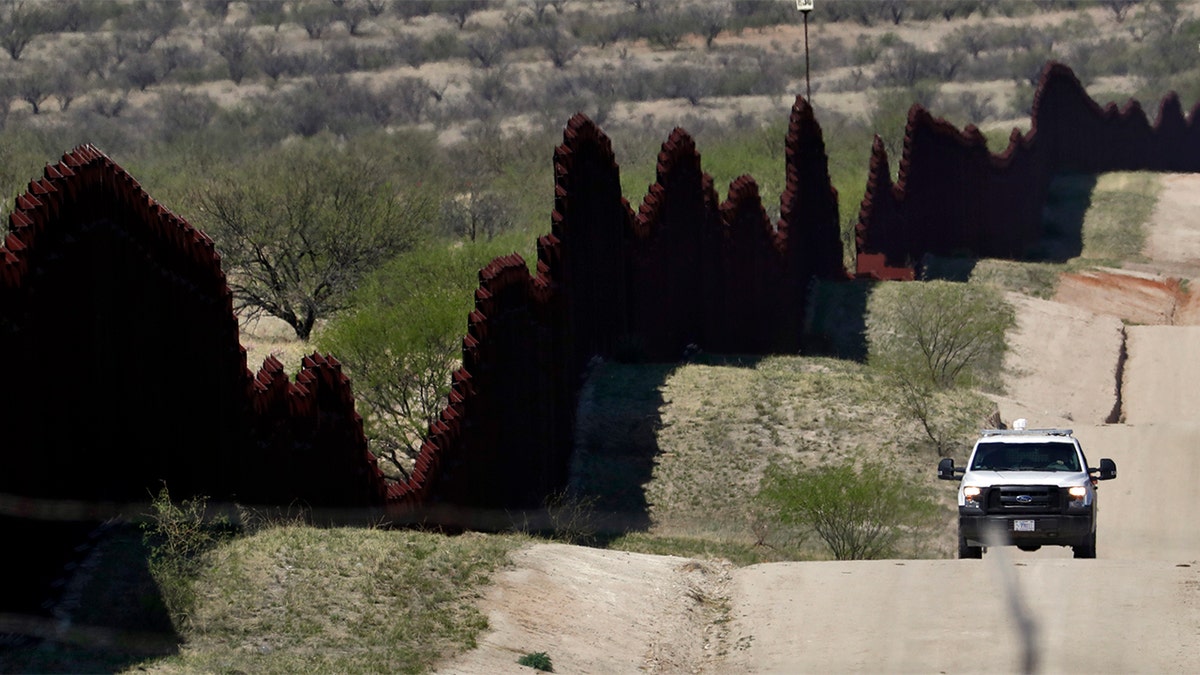
A 6-year-old boy was saved by Arizona border agents on Tuesday after being left alone in the scorching heat, officials said. (AP Photo/Matt York, File)
The 9th Circuit Court of Appeals ruled on Tuesday that the mother of a teenager shot and killed in Mexico by a Border Patrol agent standing in Arizona can sue for damages, and that the agent does not have immunity.
But just five months earlier, in March, the 5th Circuit Court of Appeals ruled the family of another dead teenager, also shot by an agent in America while the teen was in Mexico, cannot sue.
The two cases highlight how federal courts disagree over whether federal agents should have legal immunity at the border – and whether foreign nationals are protected by the U.S. Constitution. The cases could end up making their way to the U.S. Supreme Court.
Those who believe border agents should not have immunity trumpeted this week’s ruling, saying law enforcement agents are not above the law.
“The court made clear that the Constitution does not stop at the border and that agents should not have constitutional immunity to fatally shoot Mexican teenagers on the other side of the border fence,” Lee Gelernt, deputy director of the ACLU's Immigrants' Rights Project, said in a statement.
Both courts had different interpretations of the 1971 case, Bivens V. Six Unknown Named Agents.
Bivens actions allow individuals to pursue damages when there has been a violation of the U.S. Constitution by federal officers acting in the color of federal authority, according to Cornell Law School.
According to the 5th Circuit, the Bivens decision broke new ground by authorizing such a suit for Fourth Amendment violations by federal law enforcement officers who handcuffed and arrested an individual in his own home without probable cause. The case, Rodriguez vs. Swartz, heard by a panel of judges in the 9th Circuit, alleged agent Lonnie Swartz shot and killed a teen, identified only as J.A., without warning or provocation.
“It is inconceivable that any reasonable officer could have thought that he or she could kill J.A. for no reason. Thus, (Agent) Swartz lacks qualified immunity,” wrote Judge Andrew J. Kleinfeld in the 9th Circuit’s opinion.
The 5th Circuit heard its case, Hernandez vs. Mesa, by all judges on the court after the Supreme Court sent it back to them for reconsideration. In 2010, agent Jesus Mesa shot and killed 15-year-old Sergio Hernandez. Mesa, however, said he was acting in self-defense because Hernandez was throwing rocks at him.
The self-defense argument worked in Mesa's favor, but ultimately the court ruled that Hernandez didn't have a right to sue because he wasn't a U.S. citizen.
The 5th Circuit wrote that because no federal statute allows foreigners to collect damages if they were injured by a federal agent on foreign soil, the Hernandez family’s only opportunity to receive damages would be if the judge granted a Bivens claim.
The Supreme Court ended up remanding the case, instructing the court to make special considerations. That included Ziglar vs. Abbasi, a case where the high court reversed the 2nd Circuit’s decision and refused to grant a Bivens claim against policy-making officials involved in terror suspect detentions following 9/11.
Using Abassi as its guide, the 5th Circuit found the Hernandez case brought “new context” to the Bivens ruling.
“Because Hernandez was a Mexican citizen with no ties to this country, and his death occurred on Mexican soil, the very existence of any ‘constitutional’ right benefitting him raises novel and disputed issues,” wrote Judge Edith H. Jones, who authored the Fifth Circuit’s majority opinion. “To date, the Supreme Court has refused to extend the protection of the Fourth Amendment to a foreign citizen residing in the United States against American law enforcement agents’ search of his premises in Mexico.”
The court was also concerned that a Bivens claim could undermine the Border Patrol’s ability to perform its duties. The court expressed concerns the judiciary could influence foreign affairs, diplomacy and how an officer should respond in certain situations.
“Implying a private right of action for damages in this transnational context increases the likelihood that Border Patrol agents will hesitate in making split-second decisions,” one of the judges wrote.
That’s where these two cases defer the most. In Hernandez vs. Mesa, Mesa said he was acting in self-defense because Hernandez was throwing rocks at him. But in Rodriguez vs. Swartz, J.A. did not pose a threat to Swartz’s safety.
“Although Swartz was in the United States when he shot at J.A.," the Ninth Circuit wrote. "Mexico has both sovereignty and practical control over the street where J.A. was hit. Nevertheless, we conclude that J.A. had a Fourth Amendment right to be free from the unreasonable use of such deadly force.”




